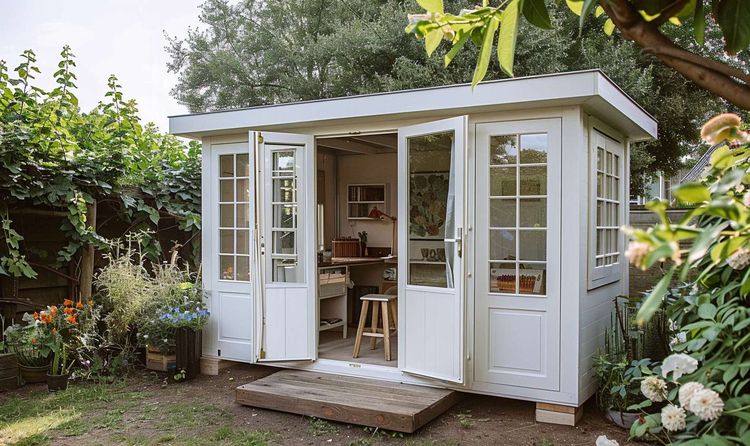Garden Offices: Transforming Your Backyard into a Productive Workspace
In recent years, the concept of a garden office has gained significant popularity among homeowners and professionals alike. A garden office, also known as a garden pod or backyard workspace, offers a unique solution for those seeking a dedicated space to work from home without compromising their living areas. This article explores the benefits, considerations, and options available for creating your own garden office.

Why are garden offices becoming increasingly popular?
The rise of remote work and flexible schedules has fueled the demand for home office solutions. Garden offices offer several advantages over traditional home offices:
-
Separation of work and home life: By physically leaving your house to enter your garden office, you create a clear boundary between your professional and personal spaces.
-
Increased productivity: A dedicated workspace away from household distractions can significantly boost focus and efficiency.
-
No commute: Eliminate the stress and time associated with commuting to a traditional office.
-
Added property value: A well-designed garden office can be an attractive feature for potential buyers if you decide to sell your home.
-
Versatility: When not used as an office, these spaces can serve as guest rooms, art studios, or recreational areas.
What should you consider before installing a garden office?
Before embarking on your garden office project, consider the following factors:
-
Planning permissions: Check local regulations to determine if you need planning permission for your garden office. Many areas allow small structures without permits, but it’s essential to verify.
-
Available space: Assess your garden to determine the ideal location and size for your office pod.
-
Budget: Costs can vary widely depending on size, materials, and features. Establish a realistic budget that includes construction, furnishing, and utility connections.
-
Insulation and climate control: Ensure your garden office is properly insulated and equipped with heating and cooling systems for year-round comfort.
-
Connectivity: Plan for reliable internet and electrical connections to support your work needs.
What types of garden offices are available?
Garden offices come in various styles and configurations to suit different needs and preferences:
-
Prefabricated pods: These ready-made structures are quick to install and often more affordable than custom-built options.
-
Converted sheds: Existing garden sheds can be transformed into cozy offices with proper insulation and upgrades.
-
Custom-built structures: Tailored to your specific requirements, these offer the most flexibility in design and features.
-
Modular systems: These allow for easy expansion or reconfiguration as your needs change over time.
How can you maximize the functionality of your garden office?
To create an efficient and comfortable workspace in your garden office:
-
Invest in ergonomic furniture to promote good posture and comfort during long work hours.
-
Incorporate plenty of natural light with large windows or skylights to reduce eye strain and boost mood.
-
Install adequate artificial lighting for cloudy days or evening work sessions.
-
Consider built-in storage solutions to keep your workspace organized and clutter-free.
-
Add personal touches like plants or artwork to create an inspiring environment.
What are the potential drawbacks of garden offices?
While garden offices offer numerous benefits, it’s important to consider potential challenges:
-
Initial cost: The upfront investment can be significant, especially for custom-built structures.
-
Reduced garden space: Your outdoor living area may be diminished, which could be a concern for those with smaller gardens.
-
Security concerns: Standalone structures may be more vulnerable to break-ins, necessitating additional security measures.
-
Maintenance: Like any outdoor structure, garden offices require regular upkeep to protect against weather-related wear and tear.
-
Potential for isolation: Some individuals may find working in a separate structure too isolating compared to a home office within the main house.
Garden offices provide an innovative solution for those seeking a dedicated workspace at home. By carefully considering your needs, budget, and available space, you can create a productive and inspiring environment that enhances both your work life and your property value. Whether you opt for a simple prefab pod or a custom-designed structure, a garden office can be a valuable addition to your home and work routine.






